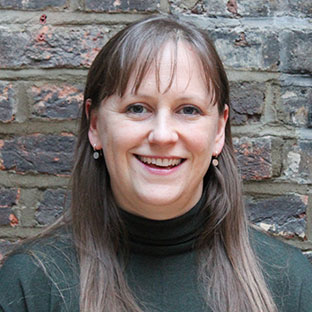As someone at the ‘action’ end of the RSA spectrum when it comes to action and research it is always worth remembering the benefits of reflecting and reviewing before rushing into the next event or must-do-thing-on-your-list. It is best done through a process of evaluation with others and self-reflection. Recently this has been both a gratifying and a humbling experience: ask people what they think and they actually tell you.
The RSA Academies Arts Day last week has been well placed to consolidate some thinking I’ve been doing on developing a methodology to our work, or to put it another way, a project design process for RSA Academies.
The purpose of this is to specify and articulate the thought process taken in designing the projects we run with the RSA schools. It is intended to be a robust and deliberate process in such a way that reflects our ethos and values and so a large extent, our distinctive approach. And I shouldn't go any further before making clear that the reason for all this is to generate the best outcomes for the young people we work with by developing their creative capacities, confidence and leadership/oracy skills.
This thinking has just bumped right up against a project I’ve been working on for a while. I’ve been producing the annual RSA Academies Arts Day for three years and it has now become an anticipated feature in the end of year calendar for Years 8 and 9. This year it took place with the addition of a group of Year 4s at The Old Rep, a young people’s theatre right in the heart of Birmingham. The challenge of this event as a one off day of engagement is manifold. These are my particular reflections:
- Different year groups from six different schools. The students across the schools do not know each other, and indeed one of the opportunities and important purposes of the day is that this is an opportunity work with people you have met for the first time. There needs care taken to create a space where children feel curious and comfortable talking to one another sharing ideas and personal thoughts with those they don’t know.
- Level of challenge on offer. There needs consideration in offering the right level of challenge with a group of students none of the facilitators have met previously and whilst having planned activities also have to respond to in the moment.
- Artistic direction. Following a subject defined path of offering the following workshop options this gives us: art, music, drama and dance, with the addition of film. There follows a strong element of curation in order to present engaging, culturally diverse opportunities that reflect the city. This is also an opportunity to offer experiences that might not be offered in school, for example, bhangra dance, street art and the use of technologies such as loop pedals.
- Securing quality facilitators on a budget. The thinking has been to work with professional creative practitioners to would introduce students to alternative ‘teachers’ who possibly have a larger creative license and to establish new contacts and networks for teachers to connect in with.
- Value of a theme. This year it was ‘identity’ which seemed startlingly appropriate in the wake of the vote to leave the EU and the lack of a strong youth vote. This year we didn’t fully capitalised on it and in fact, the students hadn’t chosen it.
- Accountability. The day this year had a stronger emphasis on performance and that students would be encouraged to work during the day with a view this playing a part in a final performance to parents. All work would be created during the day, so this would not be a polished showcase but a demonstration of a work in progress, of learning and of effort and a willingness to take a creative risk. The performance aspect is important because it is a crucial form of accountability. Some students were surprised this was the expectations.
Next year we are going to come back bigger and bolder than ever, perhaps as an Arts Festival with a pre-work/build-up in schools beforehand that is more student led in design and potentially in delivery and more teachers in facilitation roles pushing the pace.
So how does this help design a process? Well reflecting on what we currently do and aspire to do, it's become clear that the following elements are essential to our work. So to a greater or lesser extent depending on the project this is what we consider and design for:
- Co-design all/elements with teachers and/or students
- Practice is evidence based
- Include an exhibition/performance so there is accountability to an audience
- Use design thinking – prototyping, making mistakes, learning and innovating
- Think creatively – generate unexpected and surprising conditions
- Set projects in the real world
- Engage with parents, local community and business
- Connect with careers in that field
- Connect with higher education and vocational education where appropriate
- Include an enterprise dimension
- Evaluate learning and impact and include reflection – always a learning experience
- Document and disseminate – keep talking
This is a work in progress so if you have 2 minutes please add your thinking below, we would be really interested to hear your ideas or experiences…

Be the first to write a comment
Comments
Please login to post a comment or reply
Don't have an account? Click here to register.